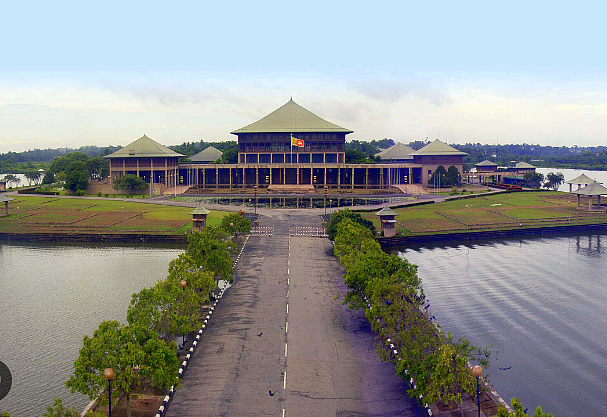Sri Lanka's Parliament on Thursday passed the much-opposed Electricity Bill that seeks far-reaching reforms in the energy sector with a high target for renewable energy capability.
Sri Lanka's Parliament Passes New Electricity Law
Energy Minister Kanchana Wijesekara said the government was in agreement with the Supreme Court’s suggested amendments and they would be incorporated

The Bill was passed with 103 lawmakers voting in favour and 59 against.
The opposition lawmakers urged the presentation to be delayed citing the Supreme Court’s citing of several clauses as unconstitutional.
Energy Minister Kanchana Wijesekara said the government was in agreement with the Supreme Court’s suggested amendments and they would be incorporated.
The Bill in the main prescribes reforms in the energy sector by causing the unbundling of the state power entity, the Ceylon Electricity Board (CEB) into eight units. The move the trade unions said was aimed at privatising the energy sector at a cost to national security.
The CEB was one of the main state entities that the IMF had wanted to be reformed in the ongoing bailout programme.
The minister was accused of assuming much power in energy management by the Opposition during the debate in Parliament.
The government argued that the Bill, when enacted, would lead to improving efficiency and pave the way for private sector participation in power generation transmission and distribution.
The CEB was one of the main state entities that the IMF had wanted to be reformed in the ongoing bailout programme.
The minister was accused of assuming much power in energy management by the Opposition during the debate in Parliament.
The government argued that the Bill, when enacted, would lead to improving efficiency and pave the way for private sector participation in power generation transmission and distribution.
-
Previous Story
 Mid-East Tensions: Hamas 'Doesn't Need New Gaza Ceasefire Deal'; 6 Israeli Hostages Found Dead
Mid-East Tensions: Hamas 'Doesn't Need New Gaza Ceasefire Deal'; 6 Israeli Hostages Found Dead - Next Story


















